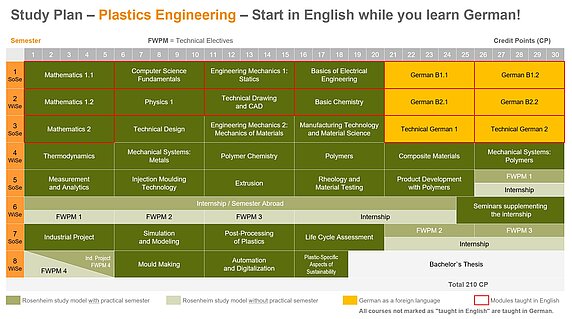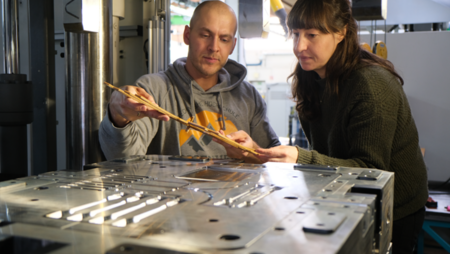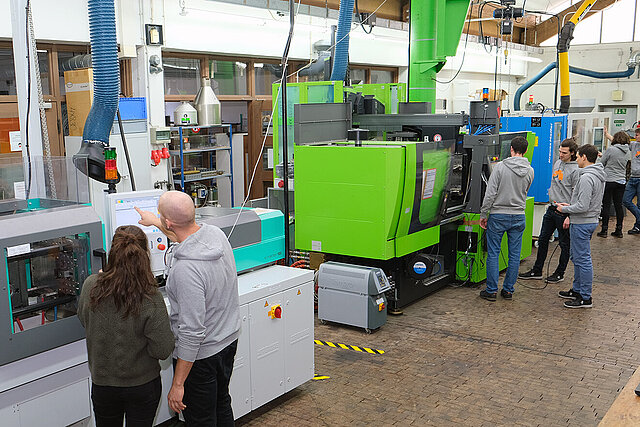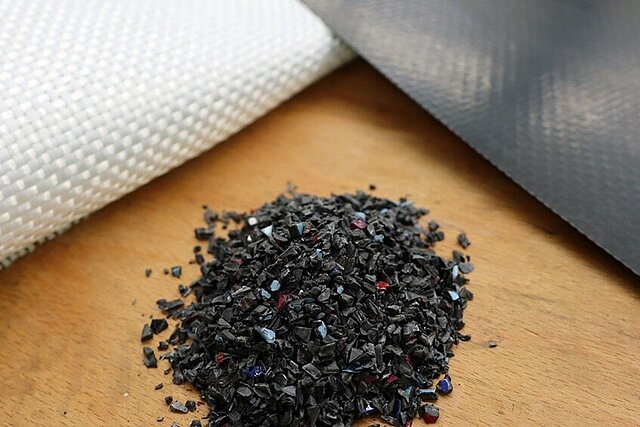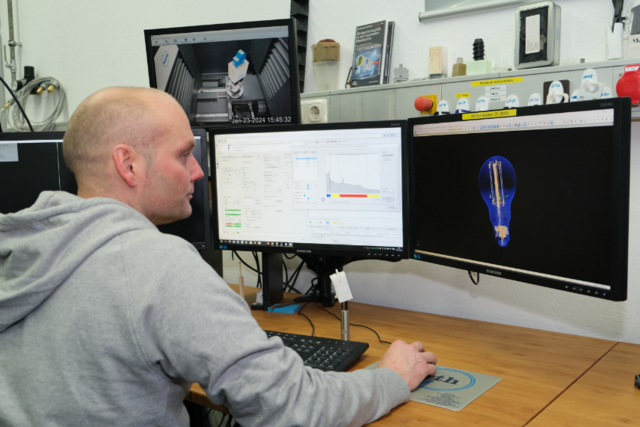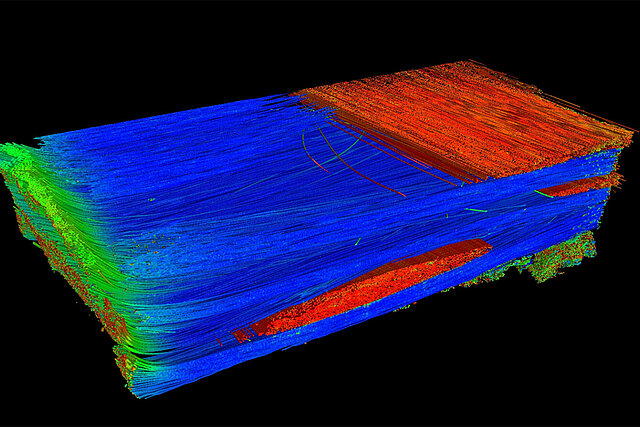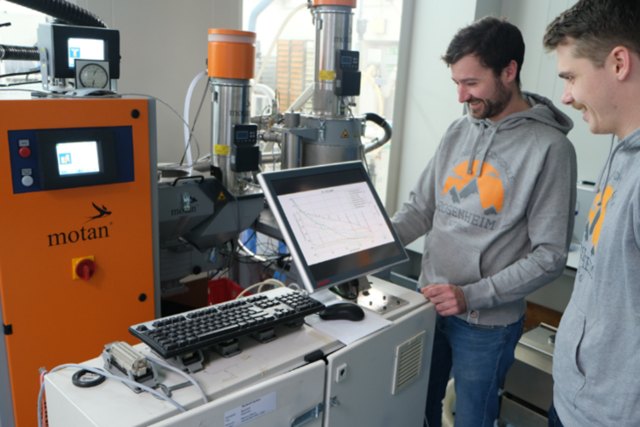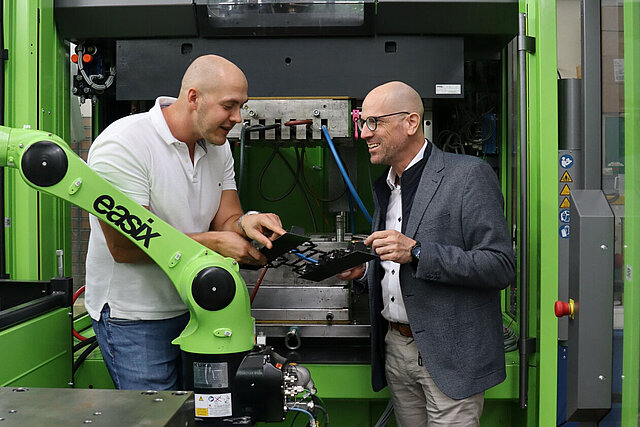About the degree programme
Plastics are much better than you think. They are far more than just everyday materials and are, without a doubt, one of the most important materials for our future! From 3D printing and innovative protective clothing to plastics for renewable energy and medical care, the possible applications are virtually limitless. Plastics enable the development of new products and solutions that make our lives more efficient, safer, and more environmentally friendly.
In the Bachelor’s degree programme in Plastics Engineering, you’ll learn everything you need to hit the ground running in this exciting, future-oriented industry!
“If you want to become part of the solution, study Polymer Engineering.” — Vitus Zenz, Doctoral Candidate/ PhD student, TH Rosenheim

Please note: Once you watch the video, data will be transmitted to Youtube/Google. For more information, see Google Privacy .
Most technical innovations wouldn’t have been possible without plastics. Don’t believe it? Take a look at our overview of the 20 most important innovations of the past 20 years—and discover how important plastics were then and still are today.
Our conclusion: Plastics are indispensable and, when used skilfully, excellent materials!
Plastics play a key role in areas such as lightweight construction, robotics, information technology, and healthcare. They enable new technologies and revolutionize existing systems. Whether in medical technology, personal mobility, or energy supply—plastics are a crucial foundation for all future technologies.
Plastics eingineering: shape your ideas

Please note: Once you watch the video, data will be transmitted to Youtube/Google. For more information, see Google Privacy .
Do you want to help shape our future? In the Plastics Engineering degree programme, you can dive into this exciting and dynamic field. And you’ll have one very important experience – plastics are much better than you think!
The Plastics Engineering programme is internationally accredited by ASIIN e.V.
- Start of programme: Summer semester (Start of studies in English)
- Academic Degree Bachelor of Engineering (B.Eng.)
- Duration: 8 semesters (3 theoretical semesters in part time in English + 4 theoretical semesters in full time in German + 1 one practical semester)
- Dual study options: “Studies with advanced in-company training” and cooperative degree programme available
– see further information on dual study models
Course content
In the study programme Plastics Engineering at the Technical University of Rosenheim, you will learn everything you need for working with plastics in practice.
In the Plastics Engineering programme, you have the option of starting your studies in English. To begin your studies, you must have English skills at level B2 and German skills at level A2. For the first three semesters, you will study Plastics Engineering part-time. This gives you time during these first three semesters to further improve your German and reach level B2. From the fourth semester onwards, you will continue your studies in German, together with your fellow students who began their studies in German.
You can take German courses at Rosenheim University of Applied Sciences that will bring you to German level B2 (see study plan above). You should normally reach this level by the beginning of your fourth semester. You must reach German level B2 by the end of your fifth semester at the latest.
In the first three semesters, the focus is on the fundamentals that every engineer should master. These include modules in mathematics, physics, chemistry, and engineering mechanics. In the fourth and fifth semester, you will learn a great deal about the specific properties of plastics – how they behave, what they are suitable for, the possibilities for processing them, and how their properties can be tested. In many modules, you will also carry out practical measurements or produce your own test components.
During the practical semester, which takes place in the sixth semester, or in the accompanying practical parts of the degree programme, you will already apply much of your knowledge and skills. In four modules, you can choose from an extensive list what you would like to focus on in more depth. These modules are listed in the study plan as FWPMs (elective compulsory modules).
In the seventh and eighth semester, you will learn methods that are important for a professional and responsible approach to plastics. You will learn how to create life cycle assessments and how to properly integrate aspects of sustainability.
A good overview is also provided in the flyer for the Bachelor's degree programme in Plastics Engineering.
Research
Learn about our ongoing research projects:
→ Injection Molding and Fiber Composite Technology Research
→ Research Group Activities and News (LinkedIn)
There are many ways to get involved in these projects—through your industrial project work or your bachelor’s thesis. Some projects also offer student assistant positions from time to time.
In the study plan, you will find detailed information on the structure of your programme and the contents of each module. The Study and Examination Regulations (SPO) set out the legal framework for your studies. Which study plan and SPO apply to you depends on when you began your programme. If you are starting Plastics Engineering now, the 2025 documents apply.
Further documents
Career Opportunities
A growth market awaits you. That’s one reason why career prospects for Plastics Engineering graduates are outstanding. Plastics are indispensable in nearly every sector of modern industry—from medical technology and aerospace to e-mobility. Whether in the automotive industry, the food sector, energy, or information technology, many exciting career opportunities await you.
You can work in product development, materials testing, sales, or production—either at large corporations or innovative start-ups.
TH Rosenheim maintains excellent ties with many leading companies, which often helps our graduates get off to a flying start. Many alumni have gone on to successful careers as in-demand experts, taken on leadership roles, and even reached top management.
As many of our graduates say:
“If I had the choice again today, I would still study Plastics Engineering.”
See what drives them and learn about their missions:
Application and admission
Language requirements
International applicants who do not yet possess German language skills at level B2 may only apply for part-time studies starting in the summer semester (in English) with a standard duration of study of 8 semesters.
When can you apply for the degree programme?
1 November - 15 January for a study start in March (summer semester)
If you are applying with a university entrance qualification from abroad (see below), you can apply via uni-assist from 1 September onwards.
How can you apply for the degree programme?
- Apply only via uni-assist if you have obtained your higher education entrance qualification outside Germany
- Apply via the TH Rosenheim online application portal if you have obtained your higher education entrance in Germany
→ Application for a degree programme explained step by step
Please note that tuition fees will apply for international students from Non-EU countries from summer semester 2026.
→ More information
Contact
For general questions about studying in Rosenheim, admission requirements, or the application process, please contact the Central Student Advisory Office.
For subject-specific questions about Plastics Engineering, programme details, or academic advising, please get in touch with the Dean of Studies.
-

Prof. Dr.-Ing. Norbert Müller
+49 (0)8031 / 805 - 2609 norbert.mueller@th-rosenheim.de -

Birgit Schuppert
+49 (0)8031 / 805 - 2955 studienberatung@th-rosenheim.de -

Florian Heinrich
+49 (0)8031 / 805 - 2495 studienberatung@th-rosenheim.de
We’ll provide you with all the information you need—contact us by email or phone; we look forward to supporting you on your journey into the world of plastics!
Student Office
Evelyn Lang
Room: D 1.13a (campus map)
Phone: +49 8031 805-2720
Fax: +49 8031 805-2702
E-Mail: studiensekretariat-ing@th-rosenheim.de
Office hours: Mon–Thu 08:00–11:00, Fri closed
Dean of Studies (Programme Director)
Practical Semester Coordinator
Prof. Dipl.-Ing. Martin Würtele
Examination Board Contact (Credit transfers, accreditation)
Prof. Dr. rer. nat. Dirk Muscat
Academic Advisor
![[Translate to English:] [Translate to English:]](/fileadmin/_processed_/2/4/csm_Campus_Rosenheim_Aussenansicht_R_Bau_im_Gegenlicht_3457df6a9e.jpg)
![[Translate to English:] [Translate to English:]](/fileadmin/_processed_/a/6/csm_2025-03-19_KT-B-NP-B_01_Urh_TH-Ro_Fak-ING_Adrian_Krey_ea45ee7aba.jpg)



